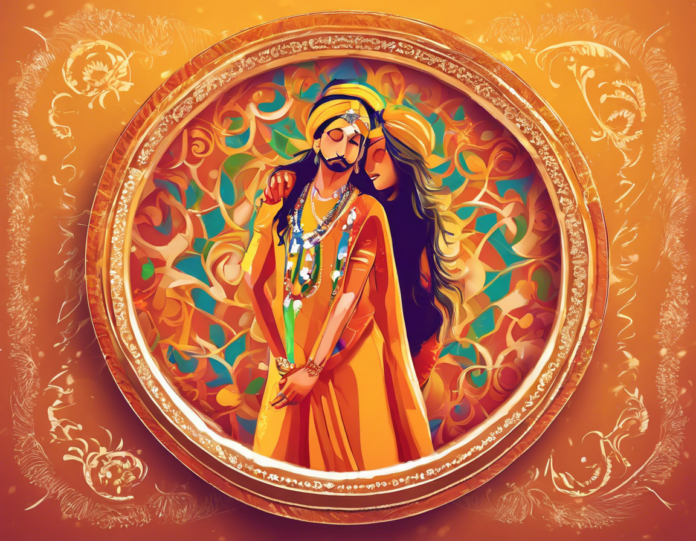Introduction
Baisakhi is a significant festival celebrated across India, especially by the Sikh community. It marks the beginning of the Sikh New Year and commemorates the formation of the Khalsa Panth in 1699 by Guru Gobind Singh. This festival is not only celebrated as a harvest festival but also holds immense religious and historical importance for Sikhs all over the world.
History and Significance
Baisakhi, also known as Vaisakhi, has its roots in the year 1699 when Guru Gobind Singh, the tenth Sikh Guru, established the Khalsa Panth. On this day, Guru Gobind Singh called upon Sikhs to uphold their faith and preserve the Sikh religion. He also declared the Five Ks – Kesh (uncut hair), Kangha (small wooden comb), Kara (circular steel bracelet), Kachera (undergarment), and Kirpan (steel sword), which are the five articles of faith that Sikhs are expected to wear at all times.
For Sikhs, Baisakhi holds immense religious significance as it signifies a rebirth and renewal of faith. It is a day of joy and celebration, as Sikhs gather at Gurdwaras to offer prayers, listen to Kirtan (Sikh hymns), and participate in Nagar Kirtan processions.
Celebrations and Traditions
The celebrations of Baisakhi vary across different regions of India, but some common traditions and customs are observed during this festival:
1. Gurdwara Visits: Sikhs visit Gurdwaras to offer prayers and seek blessings on Baisakhi.
2. Nagar Kirtan: Processions known as Nagar Kirtan are carried out, where the Sikh Guru Granth Sahib is taken out in a procession on the streets, accompanied by singing and dancing.
3. Langar: The tradition of Langar, a community kitchen where free meals are served to all, is an integral part of Baisakhi celebrations.
4. Baisakhi Fairs: In many parts of India, Baisakhi Fairs are organized, featuring performances, cultural programs, and traditional folk dances.
5. Martial Arts Demonstrations: Sikhs display their martial arts skills during Baisakhi celebrations to honor the warrior spirit of the Khalsa Panth.
Baisakhi Around the World
While Baisakhi is primarily celebrated in India, it is also observed by Sikhs and Punjabi communities around the world. In countries like Canada, the United Kingdom, the United States, and Australia, Baisakhi celebrations take place with great enthusiasm. Sikh diaspora communities come together to mark the occasion with prayers, Kirtan, Nagar Kirtan, and traditional Punjabi food.
Baisakhi serves as a reminder of the rich cultural heritage and traditions of the Sikh community, fostering a sense of unity and pride among Sikhs living in different parts of the world.
FAQs
Q1. What is the significance of Baisakhi for the Sikh community?
A. Baisakhi holds religious significance for Sikhs as it marks the formation of the Khalsa Panth by Guru Gobind Singh and signifies a renewal of faith and commitment to Sikh principles.
Q2. How is Baisakhi celebrated in Gurdwaras?
A. On Baisakhi, Sikhs visit Gurdwaras, participate in prayers and Kirtan, take part in Nagar Kirtan processions, and partake in the Langar, where free meals are served to all.
Q3. What are the Five Ks in Sikhism?
A. The Five Ks are Kesh (uncut hair), Kangha (wooden comb), Kara (steel bracelet), Kachera (undergarment), and Kirpan (steel sword), which are the articles of faith that Sikhs are expected to wear.
Q4. How do Sikhs celebrate Baisakhi around the world?
A. Sikhs around the world celebrate Baisakhi with prayers, Kirtan, Nagar Kirtan processions, cultural programs, martial arts demonstrations, and traditional Punjabi food.
Q5. Why is Baisakhi considered a harvest festival?
A. Baisakhi is celebrated as a harvest festival in Punjab as it marks the ripening of the Rabi crops and the beginning of the harvest season.
Q6. What is the importance of Langar during Baisakhi celebrations?
A. Langar holds great significance during Baisakhi as it embodies the concept of equality, community service, and sharing among all individuals, regardless of their background.
Q7. How does Baisakhi promote cultural unity among Sikhs worldwide?
A. Baisakhi brings Sikhs together globally, fostering a sense of cultural pride, unity, and solidarity as they celebrate their shared heritage and traditions.
Q8. Are non-Sikhs allowed to participate in Baisakhi celebrations?
A. Yes, Baisakhi celebrations are open to people of all faiths and backgrounds, and non-Sikhs are welcome to join in and experience the vibrant festivities and rituals.
Q9. What is the importance of Nagar Kirtan during Baisakhi?
A. Nagar Kirtan is a Sikh procession that carries the Guru Granth Sahib through public streets, allowing people to pay their respects, sing hymns, and experience the joyous atmosphere of the festival.
Q10. How can individuals participate in Baisakhi celebrations if they are not part of the Sikh community?
A. Non-Sikhs can participate in Baisakhi celebrations by visiting Gurdwaras, observing the prayers and rituals, enjoying the cultural programs, and partaking in the Langar to experience the essence of this important Sikh festival.
In conclusion, Baisakhi is a joyous and vibrant festival that holds immense cultural, religious, and historical significance for the Sikh community. Through prayers, Kirtan, Nagar Kirtan, Langar, and various other traditions, Sikhs come together to celebrate their heritage, unity, and faith on this auspicious day. Whether in India or around the world, Baisakhi serves as a reminder of the timeless values and teachings of Sikhism, promoting harmony, generosity, and communal harmony among people of all backgrounds.









